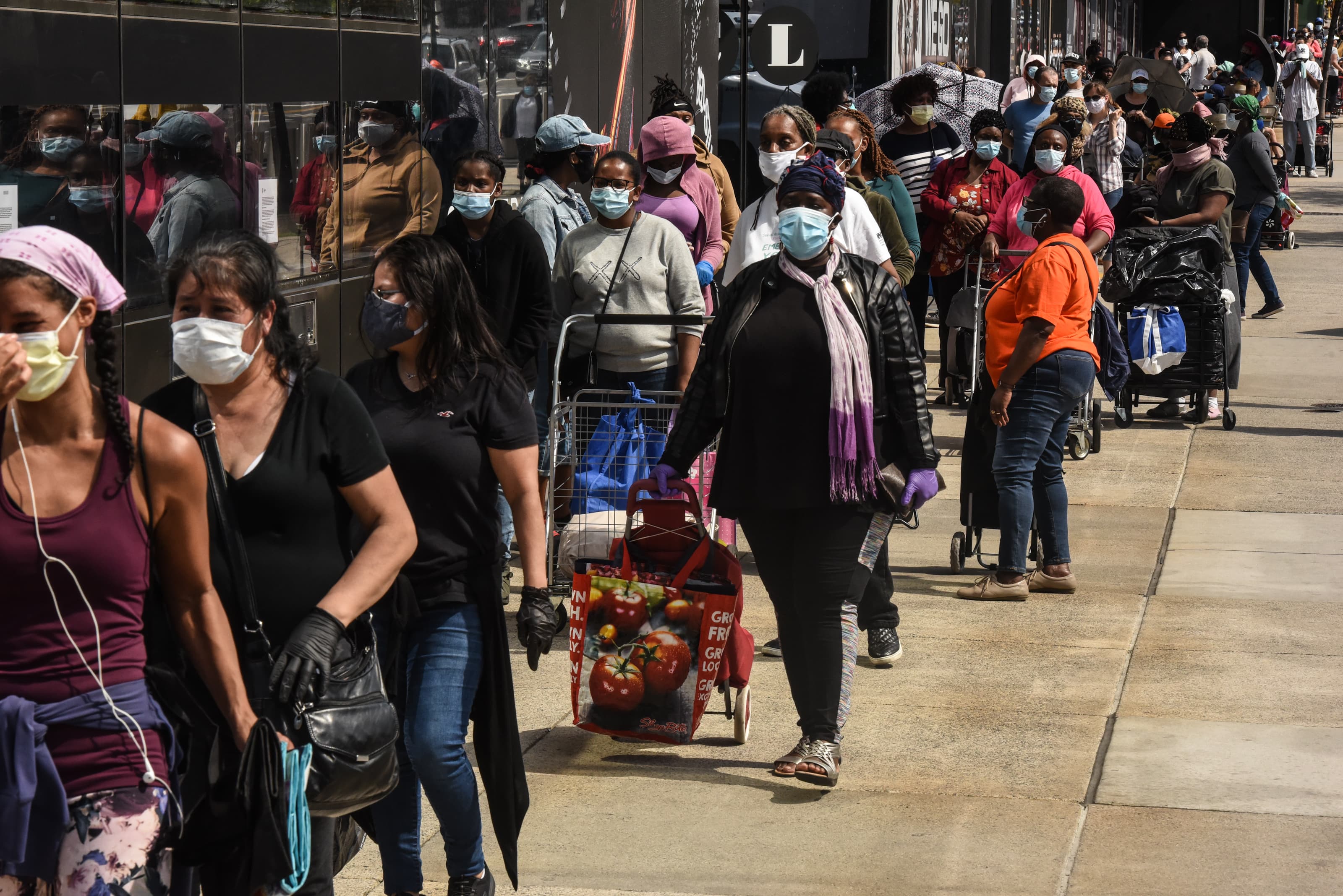New Jersey First Lady Tammy Murphy hands out bags containing meals, face masks and other personal protective supplies to residents in need outside the NAN Newark Tech World during the outbreak of the coronavirus disease (COVID-19) in Newark, New Jersey, May 6, 2020.
Mike Segar | Reuters
The worst U.S. downturn since the Great Depression is now officially a recession, according to the National Bureau of Economic Research.
Though it seemed a foregone conclusion, the NBER, the official arbiter of recessions, made the declaration Monday as the nation tries to recover from the coronavirus pandemic.
"The committee recognizes that the pandemic and the public health response have resulted in a downturn with different characteristics and dynamics than prior recessions," the NBER's Business Cycle Dating Committee said in a statement. "Nonetheless, it concluded that the unprecedented magnitude of the decline in employment and production, and its broad reach across the entire economy, warrants the designation of this episode as a recession, even if it turns out to be briefer than earlier contractions."
In making the declaration, the committee determined that a "clear peak in monthly economic activity" occurred in February. The peak in quarterly activity happened in the fourth quarter of 2019.
As a rule of thumb, recessions are thought to entail two consecutive quarters of negative GDP growth. However, that isn't always the case, and it's generally the NBER's decision to determine recessions.
The committee noted that "a significant decline in economic activity spread across the economy, normally visible in production, employment, and other indicators. A recession begins when the economy reaches a peak of economic activity and ends when the economy reaches its trough."
U.S. GDP fell 5% in the first quarter and is likely to post the worst decline in history for the second quarter — possibly more than 50%.
The recession brings to an end the longest expansion in U.S. history, which the NBER, a private, nonprofit research organization, dated as lasting 128 months, or nearly 11 years. That growth seemed poised to continue until the declaration of the coronavirus as a pandemic, a move that triggered 95% of the U.S. economy being put into shutdown and sent the unemployment rate, which had been at a 50-year low, soaring to 14.7%, its worst in post-World War II history.
However, most economists think contraction will end in the second quarter, putting a stop to the recession as well. Jan Hatzius, chief economist at Goldman Sachs, said that while this is "almost certainly the deepest recession since" the war, "it is almost certainly also the shortest recession."
In fact, Hatzius pointed out, no recession has lasted less than six months, dating back to the mid-1800s.


